Dispute between corporation counsel, clerk cancels Bloomington city council’s closed meeting
Bloomington’s corporation counsel did not include the city clerk in the group that was allowed to attend a closed council meeting, and said the meeting would be canceled if any others attended. The clerk countered that it was her job to attend. The city council’s closed door session got canceled.
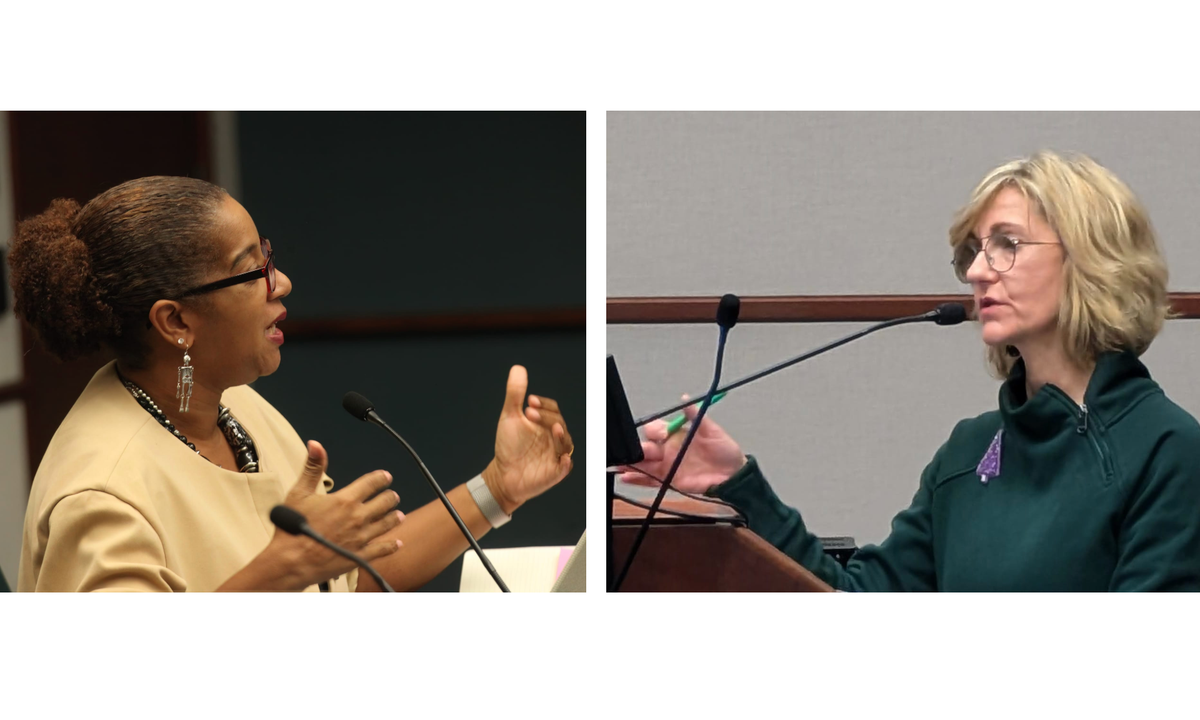
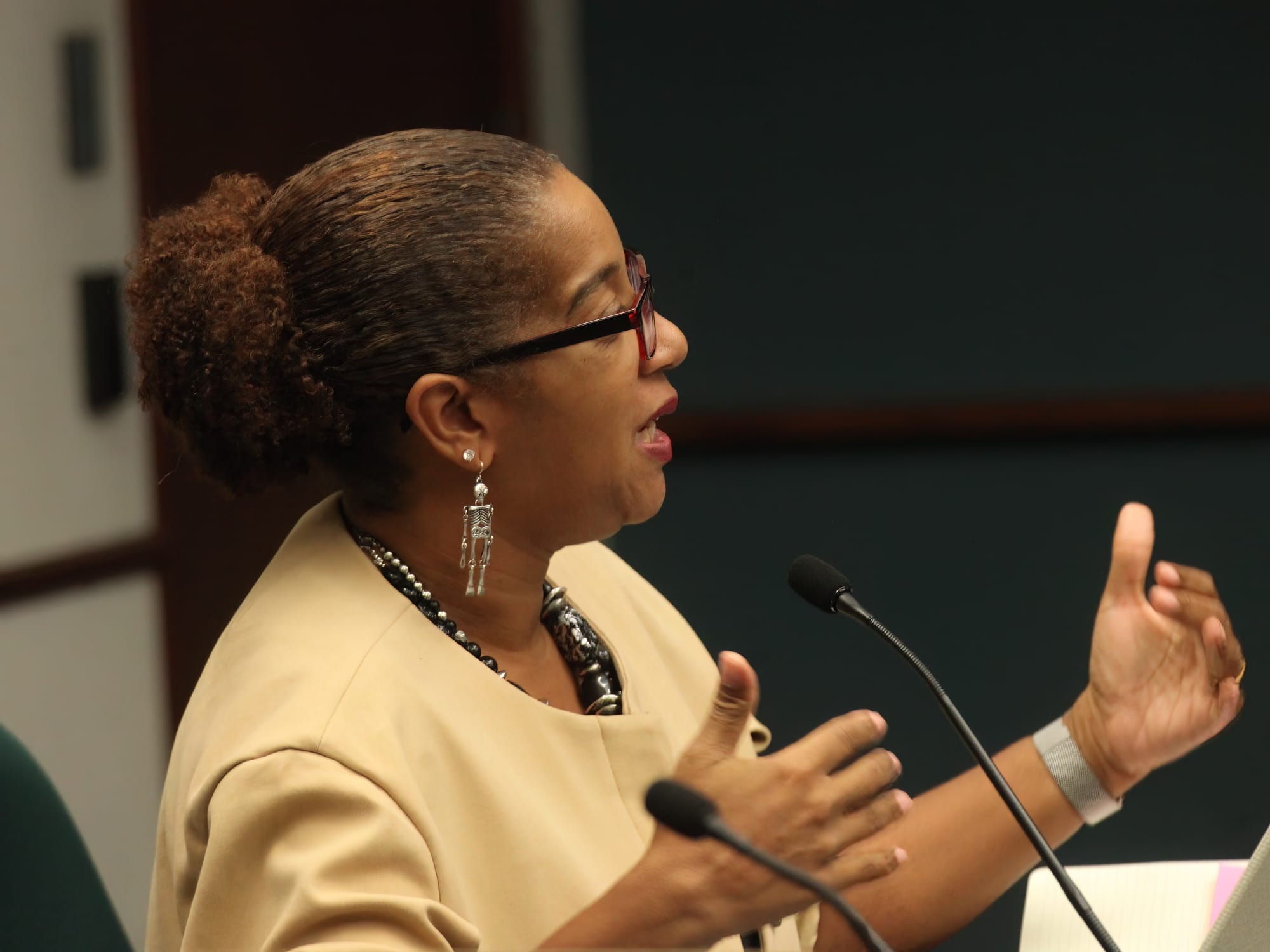
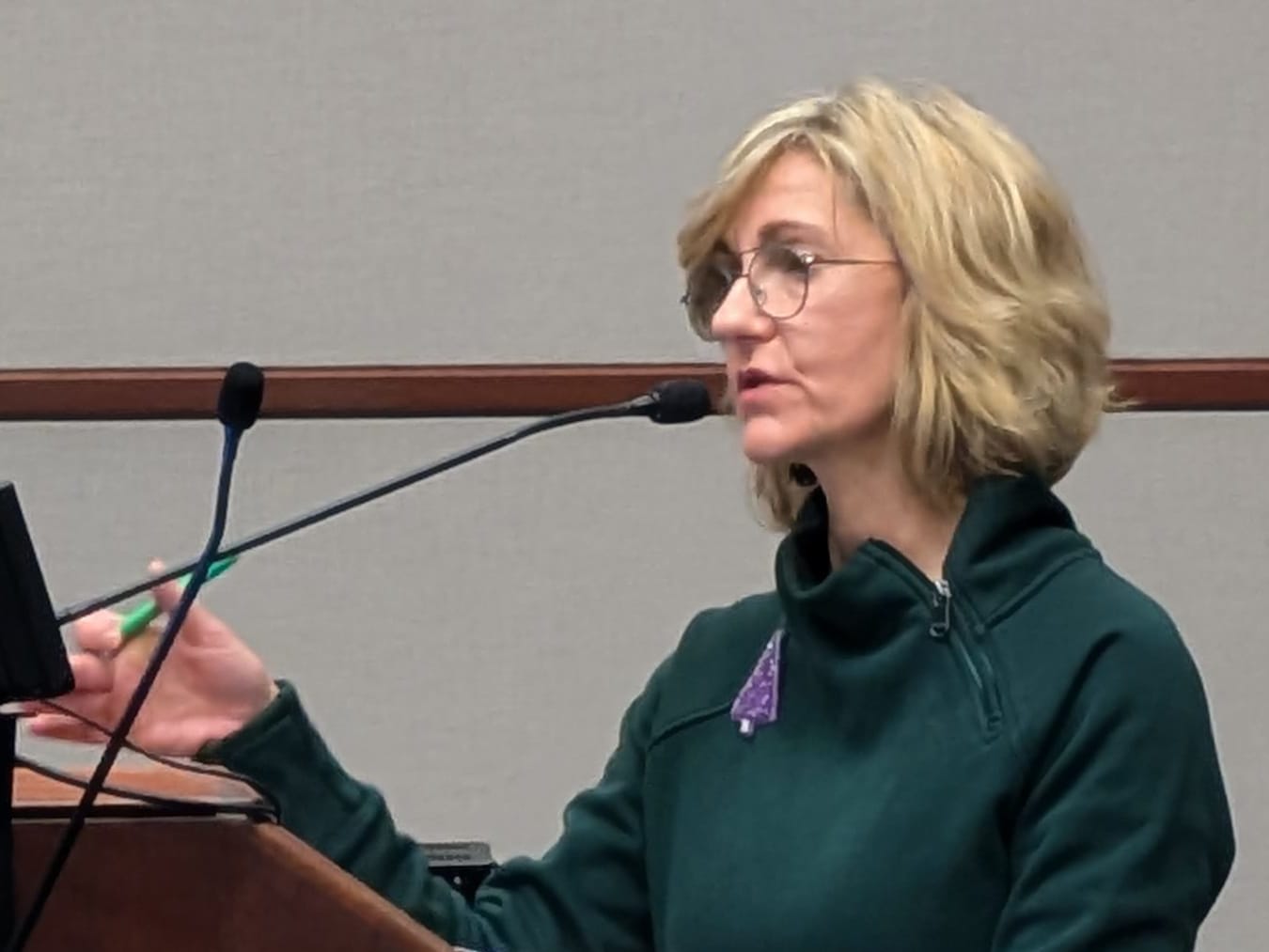
Left: B Square file photo of Bloomington’s city clerk, Nicole Bolden. Right: B Square file photo of Bloomington’s corporation counsel Margie Rice.
A dispute between city of Bloomington corporation counsel Margie Rice and city clerk Nicole Bolden resulted in the cancellation of a planned “executive session” of the city council on Wednesday.
As corporation counsel, Rice is head of the city’s legal department. As elected city clerk, Bolden has responsibilities defined under state statute, which include the requirement to “[k]eep an accurate record of the legislative body’s proceedings.” The legislative body is the city council.
The dispute was over who should be allowed inside a closed door meeting of the city council, which was scheduled for Wednesday (Aug. 27) at 5 p.m. Closed door meetings, which are allowed under limited circumstances, are called “executive sessions” in the state’s Open Door Law.
Rice did not include Bolden in the group that she believed should be allowed to attend, and said the mayor’s side would cancel the meeting if any others attended besides those that Rice identified. Bolden countered that it was her “duty to the public good” to attend. The city council’s closed door session wound up getting canceled.
The council had expected to get a briefing from the city’s legal department on the city’s pending litigation against against the owners of Crawford Apartments and the local nonprofit, Beacon, Inc. for breach of contract. The city has no direct contracts with Beacon, but the nonprofit is a named defendant in the lawsuit. Pending litigation is one of the limited specific topics that can be discussed during an executive session under Indiana’s ODL.
On Tuesday, the day before the planned executive session, Rice sent an email to the city council’s two attorneys, cc-ing an assistant city attorney, Bloomington mayor Kerry Thomson, and city clerk Nicole Bolden, “requesting” that only the nine councilmembers, the mayor, and certain staff from the HAND (Housing and Neighborhood be allowed to attend. Rice pointed to the definition of executive sessions under Indiana’s Open Door Law writing: “[The ODL] allows for necessary persons to attend, but only necessary persons.”
Rice’s email adds, “I think those listed above are the necessary persons for this purpose.”
The actual wording of the statutory definition assigns decisions about who is necessary to the “governing body,” which in this case is the city council:
(f) “Executive session” means a meeting from which the public is excluded, except the governing body may admit those persons necessary to carry out its purpose. The governing body may also admit an individual who has been elected to the governing body but has not been sworn in as a member of the governing body.
“If the attendance is not limited to the persons listed above, we would cancel the executive session,” Rice wrote.
Responding to an emailed question from The B Square about why she did not want the city clerk to attend the meeting, Rice wrote that she wanted “keep the group as small as possible,” adding, “I tend to take a cautious approach to sharing information about sensitive litigation.”
Closed sessions of the Bloomington city council are relatively rare. But for a closed session of the city council held last year on the topic of annexation litigation, Bolden attended, apparently without objection from Rice.
Bolden prepared the attestation for the memorandum for that meeting, which states: “I hereby certify on behalf of the Common Council that no decisions were made or subject matter discussed in the Executive Session other than the subject matter specified herein and in the posted notice of the actual session.” The memorandum for the August 2024 closed session indicates that the mayor’s special assistant, who coordinates the mayor’s calendar, also attended.
Rice responded to an emailed B Square question asking why her approach to attendance at last year’s executive session on annexation was different from her approach to this week’s planned executive session. Rice wrote: “The Clerk had been involved with the annexation process, given the Council’s public and legislative actions in that regard. It’s a very different factual situation than the litigation with Crawford, in my opinion.”
Bolden told The B Square that for her understanding of the clerk’s role in the context of a closed session of the council she had relied on the wording of state law with respect to the clerk’s responsibilities, and the requirements of memoranda under the ODL. Bolden said she also relied on her own legal counsel as well as guidance from the legal counsel for AIM (Accelerate Indiana Municipalities), who pointed to some opinions by Indiana’s public access counselor (PAC) on the topic. Bolden said she concluded: “I can’t make this decision for everybody else. I can just say: This is what I think my job is.”
The day after receiving Rice’s email message, Bolden sent her letter to the mayor describing how she sees the clerk’s job.
Bolden’s letter calls Rice’s reliance on the concept of only “necessary” people being admitted to a closed session a “thin legal premise.”
Rice’s email includes a copy-pasted section of state code from the chapter on clerks that lists out the clerk’s duties Rice’s email says, “I do not read anything in the statute regarding Clerk duties (copied below) that would require your attendance at this executive session.”
Bolden’s letter says that part of Rice’s email omits a crucial piece of Indiana code, about the clerk’s duties. It’s included in the chapter on city councils, not the chapter about clerks. That part of state code says that the city clerk has to:
(2) Keep an accurate record of the legislative body’s proceedings.
Bolden’s letter also notes that Rice’s email omits mention of Bloomington’s city code on the topic of the clerk’s duties which says that the clerk has a duty to:
Serve as secretary of the council and keep an accurate record of all proceedings …
Rice’s plan to satisfy the statutory requirement that a memorandum be created, in the absence of the clerk at the executive session, is described like this in Rice’s email: “The Legal Department will prepare the legally-required memorandum after-the-fact, and provide a copy to you and Council legal staff for maintenance/record-keeping purposes.”
Bolden’s letter says that Rice’s plan “directly contradicts” the statutory requirement that the clerk “keep an accurate record of the legislative body’s proceedings.”
Bolden’s letter also points to opinions issued by Indiana’s Public Access Counselor, Luke Britt, when he served in that capacity, including one from 2019. That opinion of Britt’s noted that state law requires an executive session memorandum to certify “that no subject matter was discussed in the executive session other than the subject matter specified in the public notice.”
According to Britt, “as a general rule, accuracy and verification of that statement seemingly requires attendance by a Clerk. Beyond a short list of extraordinary circumstances, a City Clerk should generally be allowed to attend executive sessions.”
Britt went further, writing that the position of clerk or clerk-treasurer “is indeed the ballast to counterbalance the public’s right to know the goings-on of local government with the ability to hold a closed-door meeting regarding sensitive topics.”
Rice responded to an emailed B Square question asking if she was aware of the PAC’s opinions on the topic of a city clerk’s attendance at a closed session of the city council when she wrote her email. Rice wrote that she was aware of the opinions, but pointed to the non-binding nature of PAC opinions: “Yes, I was aware of the previously-issued, informal, non-binding opinions of the Public Access Counselor (PAC), including 19-INF-13 (2019) and 19-FC-140 (2019).”
Rice indicated she maintains her position that the city clerk is not a necessary participant in a closed session of the city council and indicated that the situation involves a question of law that could be settled only in court: “I do not believe this issue has been finally decided by Indiana Courts and, as the PAC stated in 19-FC-140, the PAC cannot compel the attendance of the clerk at an executive session.” Rice’s email continues, “As the PAC stated, those types of disputes are relegated to the courts via Indiana Code section 36-4-4-5.”
The part of Indiana state law that Rice mentions covers disputes between the executive and the legislative branch about their respective duties.
Bolden ended her letter to the mayor by writing: “I cannot abrogate my duty to the public good.” Bolden told The B Square that she sent her letter to the mayor at 2:09 p.m. on Wednesday. Less than two hours later, she received a notification from city council president Hopi Stosberg that the executive session had been cancelled.
Responding to an emailed question, about the prospects for a rescheduled executive session or an alternate strategy for the council to get briefed on the topic of the Crawford Apartments litigation, city council president Hopi Stosberg wrote: “At the moment, the executive session has not been rescheduled. A plan will be formulated after assessing the various options available.”
Responses from corporation counsel Margie Rice
B Square questions are indicated in bold. Responses from Rice are indicated in italics.
1. Why did you want to exclude the city clerk from the executive session? Put another way, what harm were you trying to avoid by excluding the clerk?
I suggested that the executive session to discuss Crawford litigation be attended only by the Mayor, City Council, legal staff, and staff who have been directly involved with the Crawford litigation in order to provide information to Council members, but to keep the group as small as possible. I tend to take a cautious approach to sharing information about sensitive litigation. Given the differences between an executive session and a meeting where votes are taken, I thought (and still do think) that it is possible for legal staff to create or prepare the legally-required memoranda and minutes and provide for the Clerk to keep, maintain, or hold. I understand a Clerk’s role, in this type of matter, as administrative, and the executive session was about a sensitive, legal matter, which is why Council’s legal staff would be present. I sent my email to Council’s legal staff and copied Clerk Bolden, asking her to reach out to me with any questions or concerns. Clerk Bolden did not reach out to me with any questions or concerns. As such, we did not get to have a conversation before Clerk Bolden issued her letter to the Mayor.
2. The public access counselor’s opinions on the subject include his view that: “As a general rule, accuracy and verification of that statement seemingly requires attendance by a Clerk. Beyond a short list of extraordinary circumstances, a City Clerk should generally be allowed to attend executive sessions.” When you wrote the email message that states your position on attendees of the planned executive session, were you aware of the PAC’s opinions?
Yes, I was aware of the previously-issued, informal, non-binding opinions of the Public Access Counselor (PAC), including 19-INF-13 (2019) and 19-FC-140 (2019).
3. If you were not previously aware of the PAC’s opinions, now that you are aware of them, do you maintain your position that the clerk should not be allowed to attend an executive session on the Crawford litigation?
Yes, I maintain my position that there are differing opinions on this issue. As the PAC stated, reasonable minds can certainly disagree regarding the interpretation of statutes. There seems to be a genuine legal question about whether or not a clerk of a second-class city must attend and is a necessary party to an executive session, given the fact that this issue has been raised before by the Fishers City Council and discussed in PAC opinions. I do not believe this issue has been finally decided by Indiana Courts and, as the PAC stated in 19-FC-140, the PAC cannot compel the attendance of the clerk at an executive session. As the PAC stated, those types of disputes are relegated to the courts via Indiana Code section 36-4-4-5.
4. Assuming that you were aware of the previous relevant guidance from the PAC on the topic of city clerks and executive sessions of the city council, there could be an implication in your stance on attendance by the clerk that you believe the clerk has some stake in the litigation, or else “makes a habit of leaking sensitive information in violation of Indiana code section 5-14-3-10(a).” Is it in fact your belief that the city clerk has a stake in the litigation or has a habit of leaking sensitive information?
No, that is not my belief.
5. The Open Door Law requires the relevant memoranda to be kept “as the meeting progresses.” But in your email message stating your position on attendees of the planned executive session, you wrote: “The Legal Department will prepare the legally-required memorandum after-the-fact, …” How do you square up “after-the-fact” preparation with keeping the memoranda “as the meeting progresses”?
In an executive session only certain topics may be discussed (as stated in the public notice), verbatim minutes are not kept, and no votes are allowed to be taken. Practically speaking, the minutes and memoranda are actually or typically created after the meeting. The requirements for Executive Sessions are modified in that the memoranda and minutes must identify the subject matter by specific reference to the statutory citation for which the meeting was called. The governing body must certify that no subject matter was discussed in the executive session other than the subject matter specified in the meeting notice. To be accurate, that certification is signed after the meeting and the discussion ends.
6. Was the executive session called by the mayor exercising her authority to call a special meeting of the council, or by the council (president or three councilmembers) with the mayor and legal staff as invitees?
The Clerk noticed the meeting, I believe, after staff for the Mayor and Council discussed scheduling an executive session. I believe that would be characterized by the Mayor initiating the executive session.
7. If, in order to get a briefing on the Crawford litigation, the city council were to invoke its authority under IC 36-4-6-21 to investigate the legal department and ask you to appear before the council in an executive session to brief them on the Crawford case, with the city clerk in attendance, would you comply with that request or would you appear only under a subpoena?
I am not entirely sure IC 36-4-6-21, which deals with investigations, is the best mechanism or most appropriate way for the City Council to get a briefing on litigation. Having said that, I would comply with any legally and appropriately-issued subpoena; however, subpoenas may be subject to a motion to modify or quash if they are deemed unreasonable or oppressive. If a subpoena were issued, I would review it and determine the appropriate legal response.
Followup question: Re: “I suggested that the executive session to discuss Crawford litigation be attended only by the Mayor, City Council, legal staff, and staff who have been directly involved with the Crawford litigation in order to provide information to Council members, but to keep the group as small as possible. I tend to take a cautious approach to sharing information about sensitive litigation.”
Your approach looks like it has changed, though, compared to the closed session held in August last year, on the topic of annexation litigation. The clerk attended that closed session, as did the mayor’s special assistant, apparently without your objection. What accounts for the difference between your approach to that closed session and the one that was supposed to happen on Wednesday?
The Clerk had been involved with the annexation process, given the Council’s public and legislative actions in that regard. It’s a very different factual situation than the litigation with Crawford, in my opinion.

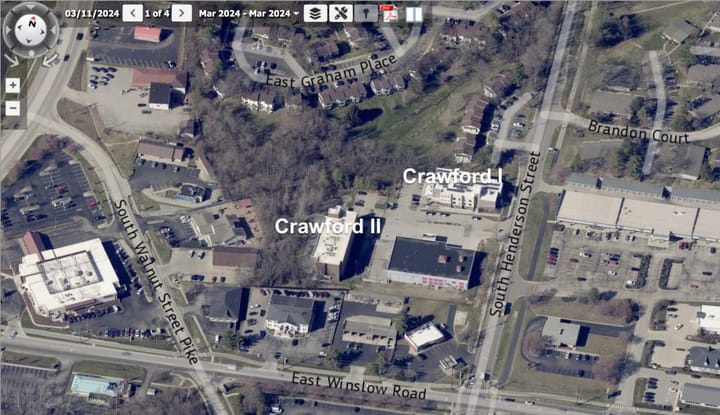
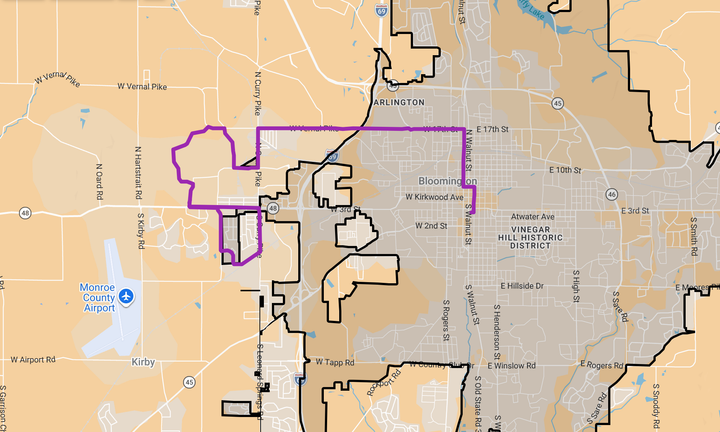
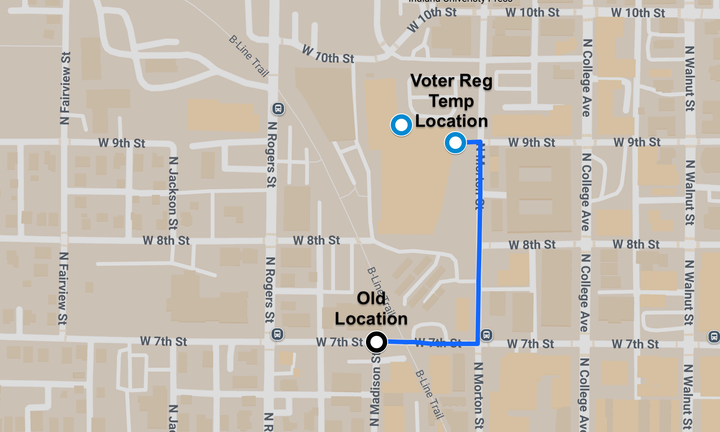
Comments ()